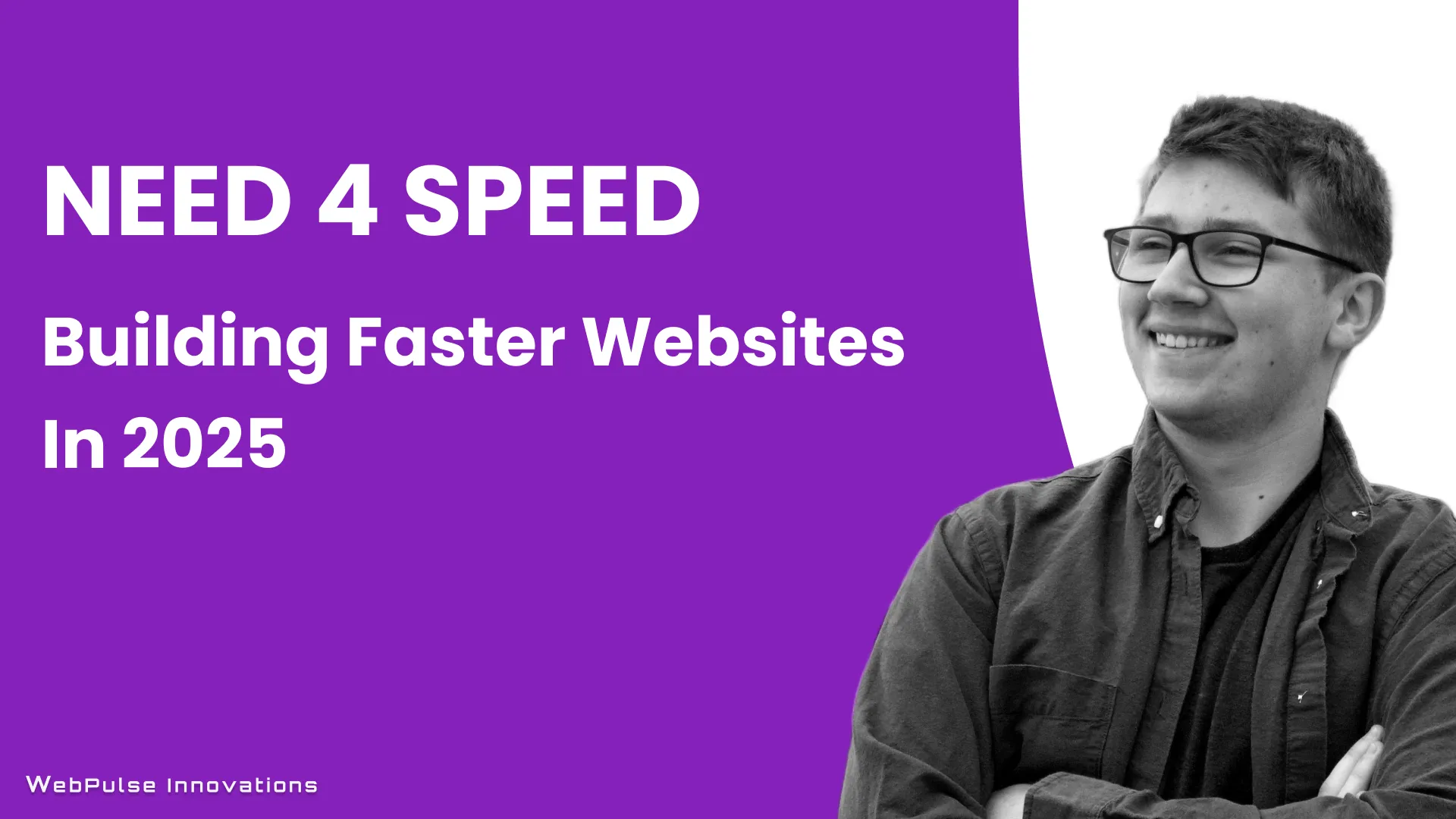Introduction: The Need for Speed in 2025
In 2025, the race for faster websites is more crucial than ever. With users demanding seamless experiences, slow-loading websites can quickly drive them away. Speed and performance aren't just nice-to-haves anymore; they’re essential for user retention, conversion rates, and most importantly, SEO. So, how to make your website more efficient is a top priority for any business looking to thrive in the digital age.
This article delves into practical, proven ways to build faster websites in 2025. We’ll explore what slows down websites, why faster websites are vital for your SEO efforts, and offer actionable tips to enhance speed and performance. Let’s dive in!
What Slows Down Websites?
Before diving into solutions, it’s crucial to understand what slows down websites. By identifying and tackling these issues, you can implement fixes that lead to substantial improvements in performance. Here are some of the most common culprits:
a) Large Image Files
Heavy images are one of the primary causes of slow website load times. High-quality images are essential for showcasing products or content, but if they’re not optimised properly, they can severely impact your site’s speed.
b) Bloated Code
Excessive JavaScript and CSS files can weigh down your website. Unnecessary code, multiple scripts, and unoptimised stylesheets can increase loading times significantly.
c) Slow Hosting
The server hosting your website plays a critical role in speed. If your hosting plan is not suited for the demands of your website, you’ll experience delays.
d) Unoptimised Web Fonts
Web fonts, while stylish, can be quite heavy. Without proper optimisation, they can add additional load time to your pages.
e) Too Many HTTP Requests
Each element on a webpage (images, scripts, stylesheets, etc.) generates an HTTP request. The more requests a page makes, the longer it takes to load.
By addressing these issues, you'll set the stage for a faster, more efficient website in 2025.
Proven Ways to Build Faster Websites in 2025
The digital landscape is constantly evolving, but the principles of website performance remain relatively consistent. Here are key strategies to help you build faster websites that improve user experience and, crucially, boost your SEO.
a) Image Optimisation: Shrink and Compress
One of the simplest yet most effective ways to make your website more efficient is by optimising images. Use image compression tools like TinyPNG or ImageOptim to reduce file sizes without losing quality. Additionally, consider using newer formats like WebP, which provide high-quality images at smaller file sizes.
Tools for Image Optimisation:
- TinyPNG
- JPEG-Optimizer
- ShortPixel
b) Leverage Browser Caching
Browser caching stores elements of your website on users’ devices, so they don’t have to re-download them every time they visit. Setting a cache expiration date and enabling gzip compression are simple ways to speed up page loads.
c) Minimise HTTP Requests
Streamlining your webpage’s elements is a game-changer when it comes to website performance. Combine CSS and JavaScript files, eliminate unnecessary plugins, and reduce external resources to minimise HTTP requests.
d) Content Delivery Network (CDN)
A Content Delivery Network (CDN) helps you deliver your website’s content from multiple locations around the globe. By distributing your website’s resources across servers closer to the user, CDNs dramatically reduce loading times, especially for international users.
Benefits of CDNs:
- Faster load times
- Scalability
- Improved security
e) Lazy Loading for Better Performance
Lazy loading is a technique that loads only the visible elements of your page initially, deferring the loading of images and content further down the page until the user scrolls. This reduces initial load times and improves performance, especially on long pages.
Does Having A Faster Website Improve SEO?
One of the most important aspects of building faster websites in 2025 is understanding how it affects your SEO rankings. Google has made it clear that page speed is a ranking factor. A faster website not only provides a better user experience but also boosts your visibility in search engine results.
a) The Google Algorithm and Page Speed
Google’s Core Web Vitals assess the user experience based on loading performance, interactivity, and visual stability. Websites that score well on these metrics tend to rank higher in search results.
b) Improved User Experience and Engagement
A faster website leads to lower bounce rates and higher engagement, both of which signal to search engines that your site provides value to users. This, in turn, improves SEO performance.
c) Mobile SEO and Speed
With mobile traffic dominating the internet, ensuring your site is mobile-optimised and loads quickly on smartphones is critical for SEO. Google’s mobile-first indexing prioritises mobile-friendly, fast-loading sites.
Monitoring and Ongoing Improvements
Even after implementing the initial fixes, it’s essential to monitor your website’s speed and performance consistently. Tools like Google PageSpeed Insights, GTMetrix, and Pingdom can provide detailed reports on your site’s performance, helping you identify any areas for improvement.
a) Regular Audits and Updates
A regular speed audit allows you to keep your website optimised. As you add content, plugins, and features, it’s vital to assess how these impact your website’s performance.
b) Keeping Up with Web Development Trends
Web technologies evolve quickly, so staying updated with the latest tools, frameworks, and best practices can help you maintain a competitive edge. For instance, next-gen formats like WebP and AVIF for images or HTTP/3 for faster server communication can ensure you stay ahead of the curve.
Speed Equals Success in 2025
In 2025, faster websites are no longer just a luxury—they are an expectation. By implementing strategies such as image optimisation, reducing HTTP requests, using a CDN, and embracing performance-first practices, you can create a website that delivers superior speed and improves your SEO.
Remember, faster websites not only enhance user experience but also play a significant role in SEO rankings, helping you stand out in an increasingly competitive digital landscape. So, make building faster websites in 2025 a priority to stay ahead of the curve.
